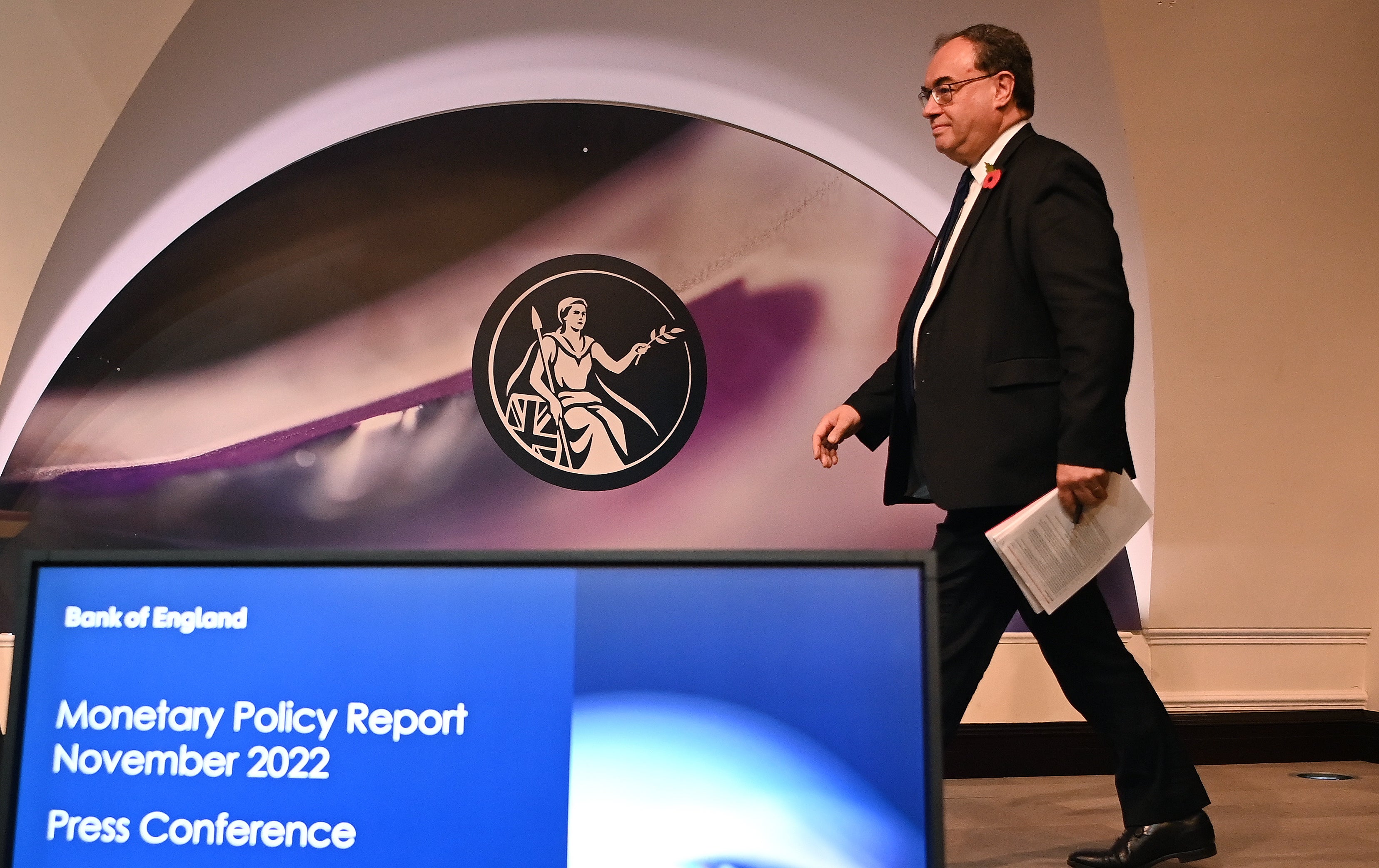A two-year recession and the biggest interest rate rise in 30 years – what does all this mean for Labour?
Markets have traditionally been more anxious about Labour than the Tories, writes Andrew Grice


On the face of it, a two-year recession, the longest since records began, and the biggest interest rate rise for 30 years is a disaster for the governing party. Indeed, the Bank of England’s gloomy prognosis might persuade the Conservatives to delay the general election they have long pencilled in for May 2024 until the autumn of that year. That could leave the Tories clinging to power as their time runs out.
Yet politics doesn’t always run on predictable lines; this scenario will not necessarily bring a bonus for the opposition party. Labour was confident of victory at the 1992 election, held in a recession, but wary voters decided to hold on to the Tory nurse for fear of something worse.
It’s dawning on Keir Starmer’s shadow cabinet that Liz Truss’s failed experiment will make it harder for Labour to borrow to fund its spending plans. The pared-back spending plans to be announced by Jeremy Hunt on 17 November as he fills a £50bn hole in the public finances will likely become Labour’s baseline. Labour, too, would be looking over its shoulder at the financial markets.
That the recent turmoil happened on the Tories’ watch would not spare Labour from the same scrutiny. Indeed, markets have traditionally been more anxious about Labour than the Tories.
There are growing fears in Labour land that Hunt is likely to shoot Labour’s fox by bringing in tax rises that ensure “people with the broadest shoulders bear the greatest burden”. Hence today’s reports that the chancellor could tweak capital gains tax and taxes on share dividends.
As well as raising revenue and showing the Tories are not afraid to soak their natural supporters, such measures might also blow a hole in Labour’s “fair tax” strategy. They are precisely the sort of ideas being considered by Labour.
Team Starmer is nervous about proposing further tax hikes on the grounds it would allow the Tories to draw their favourite dividing line. The tax increases in Hunt’s autumn statement would not stop the Tories from promising to cut the basic rate of income tax in their 2024 election manifesto.
Little wonder, then, that Starmer is lowering his party’s expectations of what an incoming Labour government could do. “We will have a rotten inheritance,” one senior figure told me ruefully. “A lot of Hunt’s cuts would bite after a 2024 election. That is a big problem for us. We are going to be very constrained. We will not want to depart significantly from the Tories’ tax and spending plans.”
Rachel Reeves, the shadow chancellor, has pledged to borrow £28bn a year to fund a green jobs and investment revolution. But there now seems little prospect of Labour going beyond that. Labour insiders recall that at the 1997 election, the party’s promise to stick to the Tories’ tight spending plans for two years reassured voters. (Kenneth Clarke, the outgoing Tory chancellor, later admitted that his party would never have been able to stick to them.)
Team Starmer’s noises are causing alarm on the left that Labour will sign up to “austerity 2.0,” as Rebecca Long-Bailey foreshadowed in The Independent.
Left-wingers fear Labour could then be indistinguishable from the Tories.
Indeed, the prime minister and Labour leader have more in common than they would admit. Aides of both concede they are relatively inexperienced, having entered the Commons only seven years ago. Both offer a rather boring, “no drama” competence as an antidote to the instability of the Truss and Boris Johnson eras.
How, then, will Labour combat Sunak? Labour officials tell me the opposition will play the ball, not the man, attacking a Tory brand tarnished by 12 years in power, rather than resorting to personal attacks. Starmer will repeatedly highlight the “Tory premium on mortgages” – clever because it is true. Suella Braverman, the home secretary, foolishly strengthened Labour’s hand by admitting the asylum system is “broken”.
To keep up to speed with all the latest opinions and comment sign up to our free weekly Voices Dispatches newsletter by clicking here
It’s revealing that Sunak’s main attack line against Starmer is to remind voters he wanted Jeremy Corbyn to become prime minister. Labour aides detect the hand of Isaac Levido, the impressive Tory strategist who worked for Johnson, was dropped by Truss and who Sunak wants to recall. Some Starmer allies insist the attack will merely remind people the Labour leader is “not Corbyn”. Others suspect it might raise fears in voters’ minds about who the real Starmer is.
All the more reason, then, for Labour to set out its stall. It has not yet sealed the deal with voters; some of those who have deserted the Tories will now give Sunak a chance and he is closing the gap in the opinion polls.
So the opposition must urgently tell a story of what has gone wrong for the country under the Tories and how Labour would put it right. With Starmer’s ability to make spending promises limited, his already difficult task has just got even harder.






Join our commenting forum
Join thought-provoking conversations, follow other Independent readers and see their replies
Comments